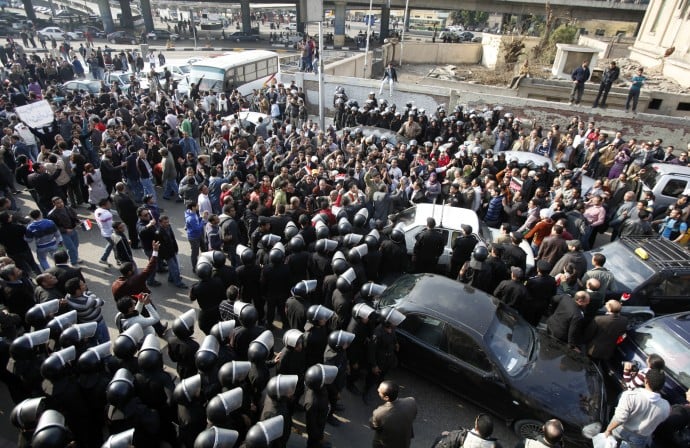
Photo courtesy of the The International Business Times
When all of Iran seemed to be exploding in the wake of “President” Mahmoud Ahmadinejad‘s “victory” in the 2009 election, the news was noteworthy not just because a country struggling against authoritarian rule was trying to free itself, but also because of how the news got out: Twitter. Before cell phones integrated with digital cameras, smart phones, and Twitter, it’s possible that the world at large might have received no notice at all of the massive protests, deaths, vicious governmental crackdowns, and all the other info about Iran’s “Green Revolution”.
Now we’re getting some similar happenings in North Africa. If you follow the news, you may know that last week, Tunisians basically threw their “president” out of office, and have been struggling to set up a government since. This happened so quickly that it appears the government didn’t even have a chance to respond.
More interestingly, from the tech perspective, is Egypt. Egyptians (inspired by the actions of the Tunisians, maybe?) are rising up against their “president”, Hosni Mubarak, who has been in power for nearly 30 years. One of the first things the Egyptian government did as the level of protests began to rise was to cut off the country’s internet access, and the public’s access to it. It is fascinating to me that the role of information technology in notifying the world has now become so prevalent that one of the first actions a government takes is to suppress it, like they do with radio, TV, and the press. This bespeaks the pervasiveness of internet technology.
Another point of interest about this story is the role of Wikileaks. Some reports indicate that one of the things that angered the Egyptians was the release of the Wikileaks diplomatic cables a few weeks back. From the perspective of an American, the information in those cable (which was vetted by both the Guardian of London and the New York Times) was basically embarrassing–diplomats gossiping about each other or government officials of the U.S. or other countries.
But the cables revealed something quite different to Egyptians–how deep in bed the U.S. government is with Mubarak, and what the U.S. government is (and is not) willing to do to support Mubarak’s government. And understandably, that honked off the Egyptian people something fierce. The released cables revealed to the world the brutality and suppression of the Mubarak government (and other countries’ roles in it). I am not a student of Egypt, so I can’t say definitively, but to me it appears that Egyptians were already angry and frustrated, but that the information provided by Wikileaks was the match to the powder keg, metaphorically speaking.
On a personal note, my heart goes out to the Egyptian and Tunisian people in their struggle.
There are two things that I think we can see from all this: the power of information tech is growing, and governments are doing their best to contain and suppress it. As a person who believes that most information–especially about government actions against its citizens–should be available to all, I welcome tech’s role in helping make this happen. What do you think about it?